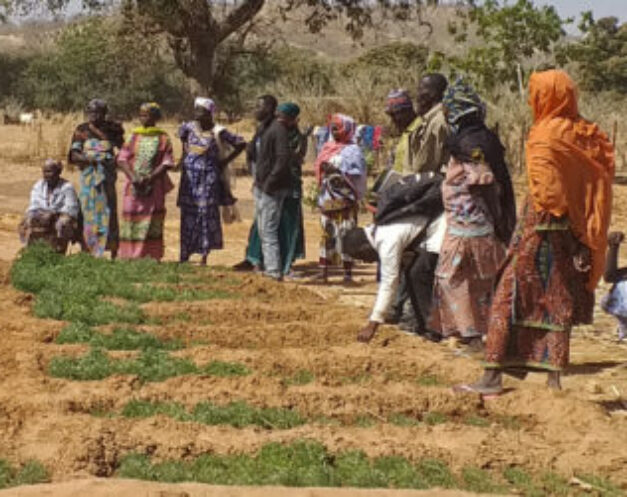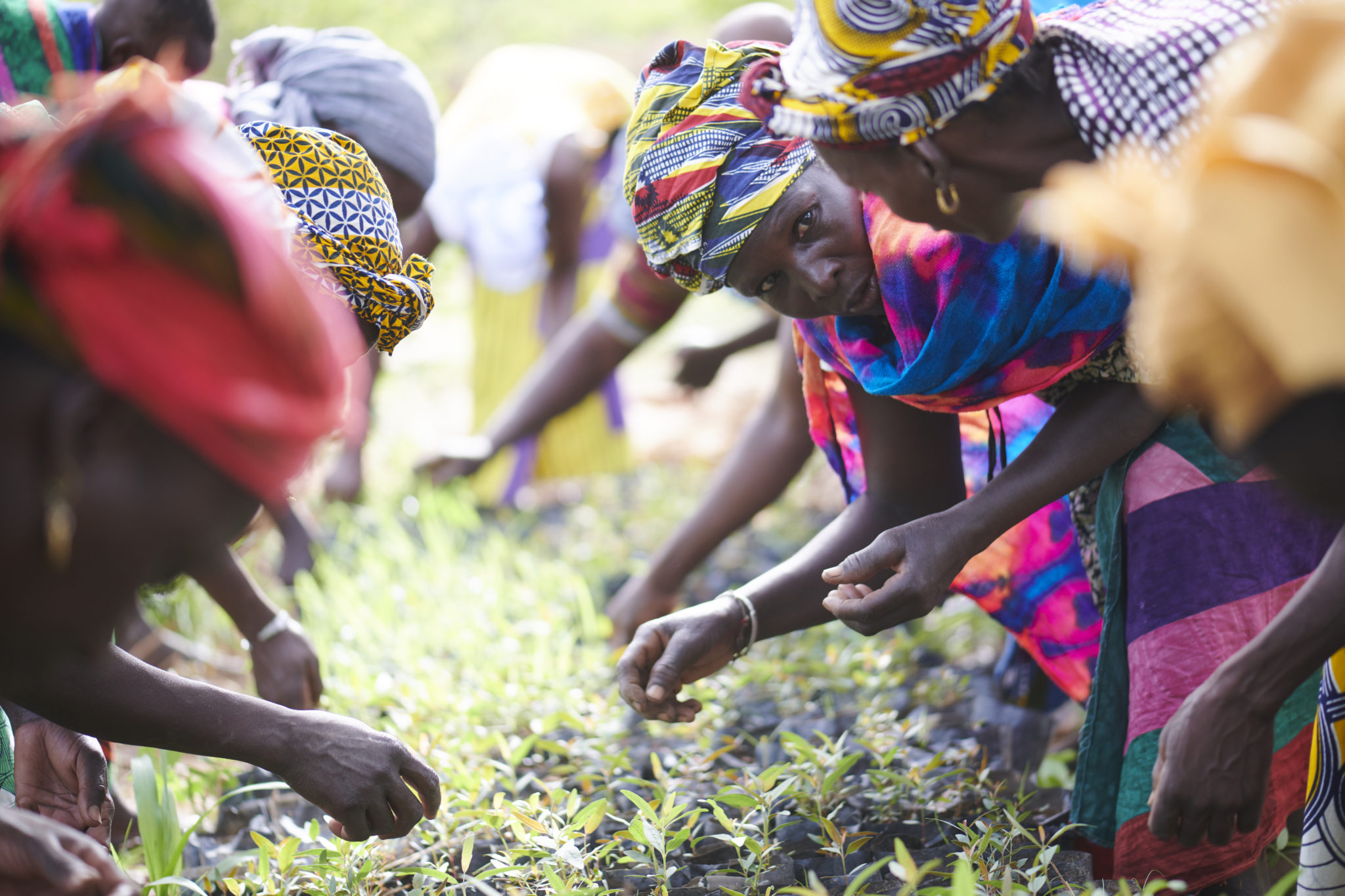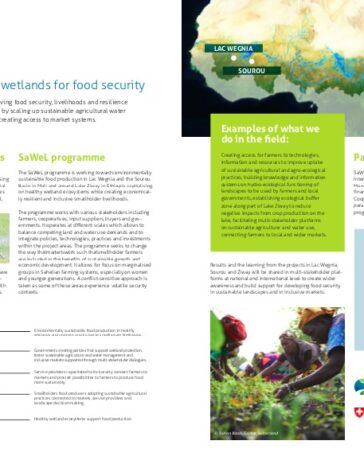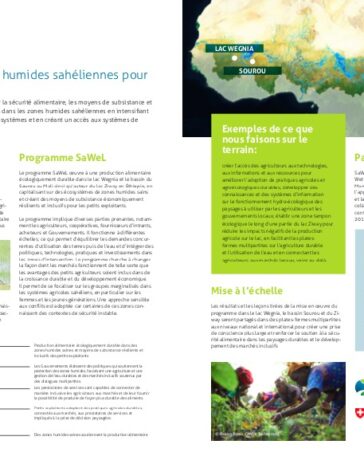SaWeL: Safeguarding Sahelian wetlands for food security

The SaWeL programme contributes to improving food security, livelihoods and resilience of smallholder farmers in Sahelian wetlands by scaling up sustainable agricultural water management, ecosystem management and creating access to market systems.
Food, wetlands and markets
Wetlands play a crucial role in supporting food security across the Sahel. These so-called ‘Blue Lifelines’ comprising of rivers, floodplains, inland deltas and lakes, are essential for farmers, fishermen and pastoralists especially in times of drought. With food production increasing in the Sahel, these wetlands are put under higher stress.
Many of the smallholders depending on these wetlands have limited access to technologies, knowledge, credit and markets. This reduces their ability to invest and experiment with more sustainable and profitable food production practices.
 Women working the fields in Mali (by Fabian Biasio, Caritas Switzerland)
Women working the fields in Mali (by Fabian Biasio, Caritas Switzerland)
SaWeL programme
The SaWeL programme is working towards environmentally sustainable food production in Lac Wegnia and the Sourou Basin in Mali and around Lake Ziway in Ethiopia capitalising on healthy wetland ecosystems while creating economically resilient and inclusive smallholder livelihoods.
The programme works with various stakeholders including farmers, cooperatives, input suppliers, buyers and governments. It operates at different scales which allows to balance competing land and water use demands and to integrate policies, technologies, practices and investments within the project areas. The programme seeks to change the way that markets work such that smallholder farmers are included in the benefits of sustainable growth and economic development. It allows for focus on marginalised groups in Sahelian farming systems, especially on women and younger generations. A conflict-sensitive approach is taken as some of these areas experience volatile security contexts.
Examples of what we do in the field
Creating access for farmers to technologies, information and resources to improve uptake
of sustainable agricultural and agro-ecological practices, building knowledge and information
systems on hydro-ecological functioning of landscapes to be used by farmers and local governments, establishing an ecological buffer zone along part of Lake Ziway to reduce negative impacts from crop production on the lake, facilitating multi-stakeholder platforms on sustainable agriculture and water use, connecting farmers to local and wider markets.
Scaling
Results and the learning from the projects in Lac Wegnia, Sourou and Ziway will be shared in multi-stakeholder platforms at national and international level to create wider awareness and build support for developing food security in sustainable landscapes and in inclusive markets.
Partners
SaWeL is carried out by a consortium of Wetlands International, Caritas Switzerland, International Water Management Institute and hydrosolutions GmbH. with the financial support of the Swiss Agency for Development and Cooperation. SaWeL also works through co-leveraging from parallel programmes and other donors’ contributions. The programme runs from 2019-2023.


